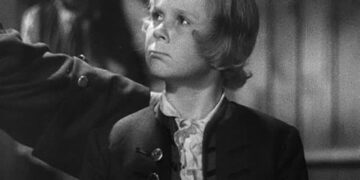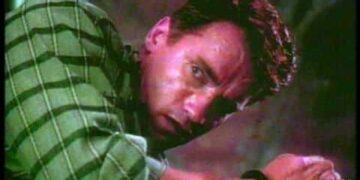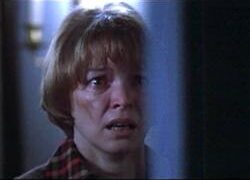Mademoiselle Paradis is a captivating novel written by Alissa Walser that takes readers on a journey through 18th-century Vienna, where the boundaries between perception and reality are blurred.
The story revolves around Maria Theresia Paradis, a talented musician who becomes blind at the age of three and is later given the chance to regain her sight through an innovative medical procedure. In this article, we will explore the various layers of Mademoiselle Paradis, providing a comprehensive summary of the book, as well as delving into other aspects such as the movie adaptation, parent guide, and more.
Plot Summary of Mademoiselle Paradis
The plot of Mademoiselle Paradis revolves around Maria Theresia Paradis, a blind pianist who captures the attention of Franz Anton Mesmer, a controversial physician known for his unconventional methods. Mesmer offers Maria the opportunity to regain her sight through his mesmerizing techniques.
As Maria undergoes the treatment, she begins to experience a world she never thought possible, filled with both joy and challenges. However, as her sight is restored, Maria finds herself torn between the familiar darkness that once defined her and the dazzling light that now surrounds her. The novel explores the complexities of perception, identity, and the sacrifices one must make in pursuit of personal freedom.
Movie Summary of Mademoiselle Paradis
Mademoiselle Paradis was brought to life on the big screen in a film adaptation directed by Barbara Albert. The movie beautifully captures the essence of the novel, showcasing the poignant journey of Maria Theresia Paradis as she navigates the complexities of her newfound sight.
Albert’s direction brings depth and emotion to the story, allowing viewers to immerse themselves in the vibrant world of 18th-century Vienna. The film adaptation of Mademoiselle Paradis garnered critical acclaim for its stellar performances, stunning cinematography, and thought-provoking exploration of themes such as disability, identity, and the power of art.
Parent Guide for Mademoiselle Paradis
Mademoiselle Paradis is a compelling novel that delves into mature themes and complex emotions. While it can be enjoyed by readers of all ages, parents should be aware of certain aspects before recommending it to younger readers.
The book explores the challenges faced by individuals with disabilities and touches upon sensitive topics such as identity and sacrifice. It also contains scenes that depict medical procedures and the emotional turmoil experienced by the characters. Parents are encouraged to read the book themselves before deciding if it is suitable for their children, and to engage in discussions to provide context and support.
Setting and Timeline: When Does Mademoiselle Paradis Take Place?
Mademoiselle Paradis is set in 18th-century Vienna, a city known for its rich cultural heritage and artistic vibrancy. The novel takes readers on a journey through the opulent salons and grand palaces of the era, immersing them in the social and cultural backdrop of the time.
The timeline spans several years, beginning with Maria Theresia Paradis’ childhood and continuing into her adolescence and adulthood. By exploring the setting and timeline, readers gain a deeper understanding of the historical context in which the story unfolds and the societal constraints that shape the characters’ lives.
Film Locations: Where Was Mademoiselle Paradis Filmed?
The movie adaptation of Mademoiselle Paradis was filmed in various locations, carefully chosen to recreate the ambiance of 18th-century Vienna. One of the primary filming locations was the picturesque city of Prague, with its well-preserved historical architecture serving as the backdrop for many key scenes.
The production team also utilized the stunning interiors of palaces and mansions, transporting viewers back in time to the decadent world of the characters. The attention to detail in the choice of film locations adds an extra layer of authenticity to the visual experience of Mademoiselle Paradis.
Character Analysis: Who’s Who in Mademoiselle Paradis
Mademoiselle Paradis is a character-driven novel, with each individual playing a crucial role in shaping the narrative. Maria Theresia Paradis, the protagonist, undergoes a profound transformation as she regains her sight, grappling with the complexities of her newfound perception.
Franz Anton Mesmer, the enigmatic physician, serves as a catalyst for Maria’s journey, challenging her beliefs and pushing her boundaries. Other notable characters include Maria’s parents, who navigate the delicate balance between protecting their daughter and allowing her to explore her potential. Through a thorough character analysis, readers gain a deeper understanding of the motives, conflicts, and growth of each individual in Mademoiselle Paradis.
Memorable Quotes from Mademoiselle Paradis
“Blindness may be a curse, but sometimes sight can be a prison.” – Alissa Walser, Mademoiselle Paradis
“Within darkness, I found my own light.” – Maria Theresia Paradis, Mademoiselle Paradis
“The world is a symphony of colors, but it is the silence within that truly speaks.” – Franz Anton Mesmer, Mademoiselle Paradis
These are just a few examples of the thought-provoking and beautifully written quotes that can be found throughout Mademoiselle Paradis. These lines capture the essence of the novel, offering insights into the characters’ struggles, desires, and revelations. Each quote serves as a window into the profound themes explored in the book, inviting readers to reflect on their own perceptions and the complexities of the human experience.
Soundtrack by Lorenz Dangel in Mademoiselle Paradis
The soundtrack of Mademoiselle Paradis, composed by Lorenz Dangel, perfectly complements the emotional depth and atmospheric beauty of the story. Dangel’s score weaves together haunting melodies and intricate harmonies, evoking the inner world of the characters and enhancing the visual experience of the film.
From delicate piano solos to sweeping orchestral arrangements, the soundtrack captures the nuances of Maria Theresia Paradis’ journey, immersing listeners in a world of both darkness and light. The music serves as a powerful companion to the book and film, deepening the emotional connection between the audience and the story.
Curiosities and Interesting Facts about Mademoiselle Paradis
Mademoiselle Paradis is a treasure trove of curiosities and interesting facts that enrich the reading and viewing experience. Did you know that the character of Maria Theresia Paradis is based on a real historical figure?
Maria Theresia von Paradis was an Austrian musician who became blind at an early age and was renowned for her musical talent. Alissa Walser drew inspiration from her life to create the fictional character of Mademoiselle Paradis. Exploring these curiosities and fascinating details adds an extra layer of depth and appreciation to the story, making it even more immersive and intriguing.
Tips for Cosplay and Dressing like Mademoiselle Paradis Characters
The visually captivating world of Mademoiselle Paradis has inspired many fans to recreate the costumes and styles of the characters through cosplay. Whether you’re attending a convention or simply want to embody the spirit of the novel, here are some tips for cosplaying as Mademoiselle Paradis characters:
- Research the historical fashion of 18th-century Vienna to capture the authentic aesthetic.
- Pay attention to the details – intricate hairstyles, accessories, and fabrics can enhance the overall look.
- Experiment with makeup to recreate the natural yet elegant beauty of the characters.
- Incorporate musical instruments or props to further emphasize the connection to the story.
- Have fun and embrace the spirit of Mademoiselle Paradis as you bring the characters to life through your cosplay.
Alissa Walser: Biography and Other Works by the Author
Alissa Walser, the talented author behind Mademoiselle Paradis, has captivated readers with her unique storytelling style and ability to explore complex themes with grace and depth. Born in Germany, Walser began her writing career with a collection of short stories before venturing into novels.
Her works often delve into historical periods and delve into the human condition. In addition to Mademoiselle Paradis, some of her other notable works include “Am Anfang war die Nacht Musik” and “Mesmerized.” Walser’s writing continues to resonate with readers, offering profound insights and thought-provoking narratives.
Ending Explained: Understanding the Conclusion of Mademoiselle Paradis
The ending of Mademoiselle Paradis leaves readers with a sense of both closure and contemplation. As Maria Theresia Paradis reaches a critical point in her journey, she is faced with a choice that will determine the course of her life.
Without giving away any spoilers, the conclusion of the novel invites readers to reflect on the complexities of perception, sacrifice, and personal freedom. It serves as a thought-provoking ending that lingers in the mind, inviting readers to question their own beliefs and the limitations they impose on themselves.
Possibility of a Remake, Sequel, or Spin-off for Mademoiselle Paradis
With its compelling narrative and richly developed characters, Mademoiselle Paradis has sparked discussions about the possibility of a remake, sequel, or spin-off. Fans of the book and movie have expressed their desire to delve deeper into the world created by Alissa Walser and Barbara Albert. While there are no confirmed plans for such projects at the moment, the enduring popularity of Mademoiselle Paradis leaves the door open for future explorations of the story and its characters.
Other Media Related to Mademoiselle Paradis by Barbara Albert
In addition to the film adaptation of Mademoiselle Paradis, director Barbara Albert has contributed to the exploration of the story through other media. One notable example is the creation of promotional material such as trailers and behind-the-scenes footage, which provide insights into the filmmaking process and the vision behind the adaptation. These additional media offerings allow fans to delve deeper into the world of Mademoiselle Paradis, gaining a behind-the-scenes perspective and a deeper appreciation for the artistry involved.
Similar Media to Mademoiselle Paradis
If you enjoyed Mademoiselle Paradis and are looking for similar media that explores similar themes and evokes a similar atmosphere, here are some recommendations:
- “The Piano” directed by Jane Campion – This film delves into the complexities of identity and personal freedom through the story of a mute pianist in 19th-century New Zealand.
- “The Diving Bell and the Butterfly” directed by Julian Schnabel – Based on a true story, this film explores the life of Jean-Dominique Bauby, who is left with locked-in syndrome and can only communicate through blinking his left eye.
- “The Shape of Water” directed by Guillermo del Toro – This visually stunning film tells the story of a mute woman who falls in love with an amphibious creature, challenging societal norms and exploring the power of love and acceptance.
Other Works by Alissa Walser That Fans of Mademoiselle Paradis Might Enjoy
If you were captivated by the writing style and themes explored in Mademoiselle Paradis, here are some other works by Alissa Walser that you might enjoy:
- “Am Anfang war die Nacht Musik” – This novel takes readers on a journey through the life of Wolfgang Amadeus Mozart’s sister, Nannerl, exploring her own musical talent and the limitations imposed on her gender.
- “Mesmerized” – In this novel, Walser delves into the life of Franz Anton Mesmer, the controversial physician who plays a crucial role in Mademoiselle Paradis. The book offers a deeper understanding of Mesmer’s motivations and the historical context surrounding his mesmerizing techniques.
Book Club Questions for Mademoiselle Paradis
If you’re part of a book club or simply want to engage in deeper discussions about Mademoiselle Paradis, here are some thought-provoking questions to consider:
- How does the theme of perception and reality play out throughout the novel? How does Maria Theresia Paradis’ journey challenge our own understanding of these concepts?
- Discuss the role of sacrifice in the novel. How do the characters navigate the choices they must make and the consequences of their actions?
- Explore the significance of music in Mademoiselle Paradis. How does it serve as a form of communication, expression, and connection for the characters?
- Reflect on the portrayal of disability in the book. How does Alissa Walser challenge societal perceptions and stereotypes through her depiction of Maria Theresia Paradis?
- Discuss the ending of the novel and its implications. How does it leave readers contemplating the themes explored throughout the book?
Travel Guide to Visit Mademoiselle Paradis Filming Locations
If you’re a fan of Mademoiselle Paradis and want to immerse yourself in the world of the story, here is a travel guide to visit some of the filming locations:
- Prague, Czech Republic – Explore the historical city that served as the primary filming location for Mademoiselle Paradis. Visit the stunning palaces, walk along the winding streets, and immerse yourself in the ambiance of 18th-century Vienna.
- Vienna, Austria – Experience the city that inspired the novel and film. Visit the iconic landmarks, such as Schí¶nbrunn Palace and Belvedere Palace, and discover the rich cultural heritage that shaped the characters’ lives.
- Salzburg, Austria – Journey to the birthplace of Mozart and immerse yourself in the musical history that permeates Mademoiselle Paradis. Explore the baroque architecture, visit the famous Mirabell Palace, and attend a classical concert to truly embrace the spirit of the story.
Conclusion: The Enduring Appeal of Mademoiselle Paradis
Mademoiselle Paradis is a captivating novel that explores the complexities of perception, identity, and personal freedom. Through the journey of Maria Theresia Paradis, readers are invited to question their own beliefs and reflect on the limitations they impose on themselves. The book’s rich storytelling, memorable characters, and thought-provoking themes have garnered a dedicated following, leading to a successful film adaptation and sparking discussions about future explorations of the story. Whether you’re a fan of historical fiction, interested in the power of art, or simply looking for a captivating read, Mademoiselle Paradis is sure to leave













